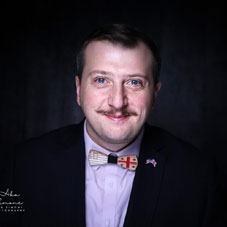
Giorgi Burjanadze to Represent President in Constitutional Case Against 'Foreign Agents' Law
By Liza Mchedlidze
Monday, August 26, 2024
Former Deputy Public Defender Giorgi Burjanadze will represent the President of Georgia in an upcoming constitutional lawsuit regarding the controversial "Foreign Agents" law. The Constitutional Court will review the potential suspension of the law, often referred to as the "Russian law" during its session on August 29-30.
Burjanadze announced his involvement in the case, emphasizing the significance of this lawsuit as the first of its kind initiated by a current president in Georgia.
"Next week, I will represent the President of Georgia in the Constitutional Court in the case against the unconstitutionality of the Russian law," Burjanadze stated. "I am honored to be part of the first lawsuit from the President in the history of Georgia."
Burjanadze expressed deep concern over the law, equating its adoption with a severe threat to Georgia's statehood. "The adoption of the Russian law is equivalent to the abolition of statehood," he said,describing the case as a symbolic clash between Georgia and Russian influence.
Burjanadze emphasized that his involvement in the public defender competition was driven by principle, not personal ambition. "When I participated in the public defender competition, it wasn't to secure a job. I believe in human rights, and in the current environment, where the Public Defender of Georgia is completely dysfunctional, I feel a double responsibility to challenge this issue," he explained.
Burjanadze mentioned a similar situation in Russia, where a public defender appealed against a similar law. However, he noted that in Georgia, the public defender has not dared to take such action.
"I often get asked what I hope for in this dispute. I don't have an exact answer-maybe a miracle. But I will try everything. If the Constitutional Court upholds our request, it could create history, protect the country from sanctions, and uphold the responsibilities of our constitutional bodies," he wrote.

